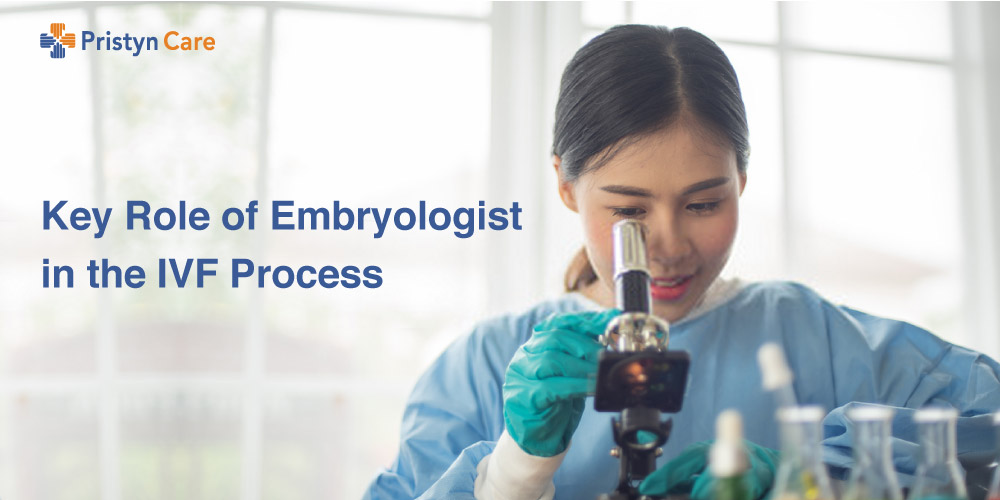![]() Views: 297
Views: 297
Role of an Embryologist in IVF Treatment?
Embryologist? Have you heard of this term? If yes, then what do they do? It will not be wrong to say that couples who look for IVF treatment have never been to an embryologist before. Embryologists are those who study sperms, eggs and embryos and identify the healthiest ones to select for the ...
tps://www.pristyncare.com/disease/ivf/">IVF treatment. Read moreThe more experienced the embryologist is, the higher are the chances of a successful IVF treatment.
Dedicated Support at Every Step!
Our Doctors are available 24 hours a day, 7 days a week to help you!
Let us discuss the role of an embryologist in the IVF process.
Table of Contents
What do Embryologists do?
Embryologists are not doctors or clinicians, they are people who are responsible for the fertilization of eggs. They study the details to the highest attention that is needed during the IVF process. It is the role of the embryologist to make sure that the fertilization of eggs and embryo development takes place in the best way possible. Embryologists play an equally important role as that of a fertility expert.
Here is the list of responsibilities of an embryologist in the IVF process:
l Maintain the lab where embryos are kept
Maintaining the labs where embryos are kept are part of the role of the embryologist. The apt environment for the lab such as right temperature, humidity and air quality is important for an IVF lab that is taken care of by an embryologist.
l Retrieving egg
The healthy sperm swim and hide in the egg. In the IVF process, the women’ s eggs are retrieved from her ovaries and fertilized with the sperm of the man. The embryos that are formed are transferred back into her uterus. Hence, there is a fluid that is removed from the ovaries during egg retrieval. The embryologists examine the fluid and collect the eggs.
l Check eggs for Fertilization
The embryologist brings the sperm and eggs together for fertilization. The embryologist keeps a check on the fertilization process by keeping them under a microscope.
l Growth monitoring
The embryologist monitors the growth pattern by placing the fertilized eggs in the temperature-controlled incubator and he makes sure that the conditions are optimal for it to become an embryo. There is a continuous check.
l Check chromosome abnormalities
If there are any genetic defects in the embryos, they are screened by the embryologist and are placed only after they are made defect-free. The checking of chromosome abnormalities and genetic defects is done by the embryologist who is highly trained and skilled to perform this procedure.
l Embryo Transfer
In between 2 - 5 days after the egg retrieval, the best quality embryos are placed by the embryologist on the transfer catheter. They hand over this loaded catheter to the fertility team who places it into the uterus through the cervix.
l Preparing Sperm Samples
The role of an embryologist also includes preparing sperm samples. They assess the samples for sperm count and motility and segregate the healthy sperms for the further fertilization process.
Take Away
It is very important that the embryologist speaks to the patient and makes them comfortable by making them understand the complete IVF treatment and the embryos. The role of embryologists starts from the time before the egg retrieval until the transfer of the embryo. They must make the patient believe that their future child is under the best care.
Above all, there is no better feeling than giving hope to the couple for parenthood who are unable to conceive on their own. This role gives one a sense of pride as you see an embryo turning into a growing child. It is highly skilled as it takes several hours to find the sperm and inject it into the egg. Pristyn Care has a team of fertility specialists to assist you in IVF treatment. Book an appointment and consult the best fertility expert right away.










